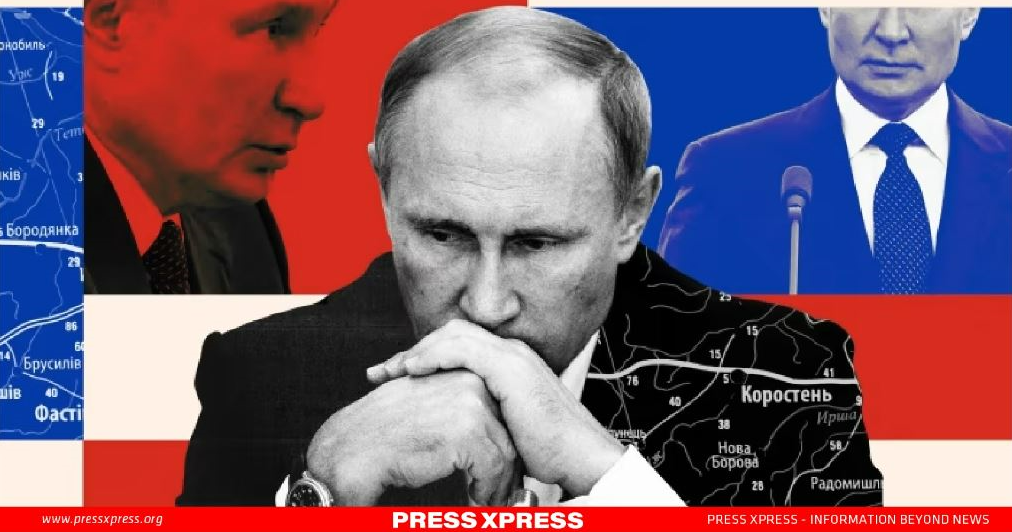President Vladimir Putin has delivered a warning to Western nations, suggesting that Russia might provide long-range weapons to countries targeting the West. His statement comes amidst heightened tensions, following NATO’s decision to allow Ukraine to utilize Western-supplied arms against Russian targets, emphasizing the increasing risk of a wider conflict and highlighting Russia’s willingness to strike back if it perceives a threat.
Putin’s comments highlight the potential for grave repercussions, stressing the direct involvement of Western countries in the ongoing conflict. This development signifies a major escalation in the Russia-Ukraine war and its far-reaching geopolitical implications, as the Russian leader’s remarks stress the readiness to respond to any perceived threats.
You Can Also Read: UKRAINE GETS GREEN LIGHT TO STRIKE RUSSIA!
Factors Influencing Putin’s Warning

Several factors are influencing Putin’s stern warning to the West. One of the primary concerns is NATO and the US’s recent decision to allow Ukraine to strike Russian targets using weapons supplied by Western nations. This move is seen as a significant escalation of the ongoing conflict and poses a direct threat to Russian interests.

Another contributing factor is Russia’s new foreign policy, which heavily emphasizes grievances against the West and frames NATO’s actions as deliberate threats to Russian sovereignty. In addition, Putin faces internal pressures to maintain control over military and political elites within Russia, pushing him to adopt an assertive and unyielding stance in the face of perceived Western aggression.
Ukraine Receives Substantial Military

Ukraine is receiving a significant boost to its defense capabilities, thanks to the generous military aid packages from the United States and the United Kingdom. The US has approved an impressive $61 (€67.1billion) billion aid package, which includes a wide range of advanced weaponry and equipment.
Among the items being provided are cutting-edge rocket systems, long-range missiles that can strike targets far beyond the front lines; and inside Russia; sophisticated air defense systems to protect against aerial threats, and powerful artillery to support ground operations.
The support demonstrates the commitment of the international community to Ukraine’s sovereignty and territorial integrity, as the nation continues to face the challenges posed by the ongoing conflict.
Ukraine Gets Greenlight to Strike Russian Targets Near Kharkiv
The United States and NATO have given Ukraine the green light to utilize US-supplied weapons to target Russian positions in the vicinity of Kharkiv. This decision comes as a strategic move to bolster Ukraine’s defensive capabilities and safeguard the crucial Kharkiv region from further Russian incursions.
The change in approach was prompted by the intensification of Russian attacks near Kharkiv, which led Ukraine to request permission to use the US-provided weaponry for defensive strikes against Russian targets.
US Secretary of State Antony Blinken publicly acknowledged this policy adjustment, emphasizing that the strikes are intended solely for defensive purposes. Blinken’s confirmation highlights the US government’s commitment to supporting Ukraine.
Analysis of Putin’s Warning
The potential consequences of Putin’s decision to supply long-range weapons to nations hostile toward the West are far-reaching and deeply concerning. By providing these advanced weapon systems, Putin is effectively giving these countries the ability to target major European cities, which could lead to a dangerous escalation of regional conflicts. The mere presence of such weapons in the hands of adversarial nations poses a significant threat to the security and stability of the entire European continent.
Moreover, the acquisition of long-range weapons by hostile nations puts NATO countries directly in the crosshairs. The alliance would be forced to confront the reality of becoming potential targets, necessitating a reassessment of defense strategies and a likely increase in military spending. It may also divert funding from Ukraine as Western nations seek to bolster their own defenses instead. This heightened state of alert could strain international relations and contribute to a climate of fear and mistrust among nations.
Furthermore, the West may feel compelled to respond to this provocation with a show of force, potentially leading to a dangerous cycle of military escalation. The risk of broader confrontations between NATO and Russia cannot be understated, as any miscalculation or misstep could have catastrophic consequences for global peace and security.
The geopolitical balance that has maintained a tenuous equilibrium in recent years would be severely disrupted by Putin’s actions. The introduction of long-range weapons into the equation could trigger a new era of instability and uncertainty in Europe and beyond, as nations grapple with the shifting power dynamics and the ever-present threat of conflict.
Who Could Receive Weapons from Russia?
If Putin supplies long-range weapons to nations hostile to the West, it could lead to several potential scenarios unfolding. Countries like Iran, North Korea, or Syria, which already have existing tensions with Western nations, might receive these weapons. This move could potentially escalate conflicts in regions such as the Middle East, leading to increased instability in those areas.
Moreover, these actions could potentially embolden other adversaries to challenge Western interests, creating a more unpredictable and volatile international environment. In response, the West would likely need to enhance its defense systems and diplomatic efforts to effectively manage these emerging threats.
Conclusion
Putin’s threat to supply long-range weapons to nations targeting the West could potentially escalate global tensions and spark new conflicts. This move is likely aimed at countering NATO’s support for Ukraine.
While the immediate risk to Western territories may be relatively low, the long-term consequences could involve increased regional instability and strained international relations. The West must prepare for heightened security risks and diplomatic challenges moving forward. Developing effective diplomatic and military strategies will be essential to mitigate these emerging threats and maintain global stability in the face of Putin’s provocative actions.


